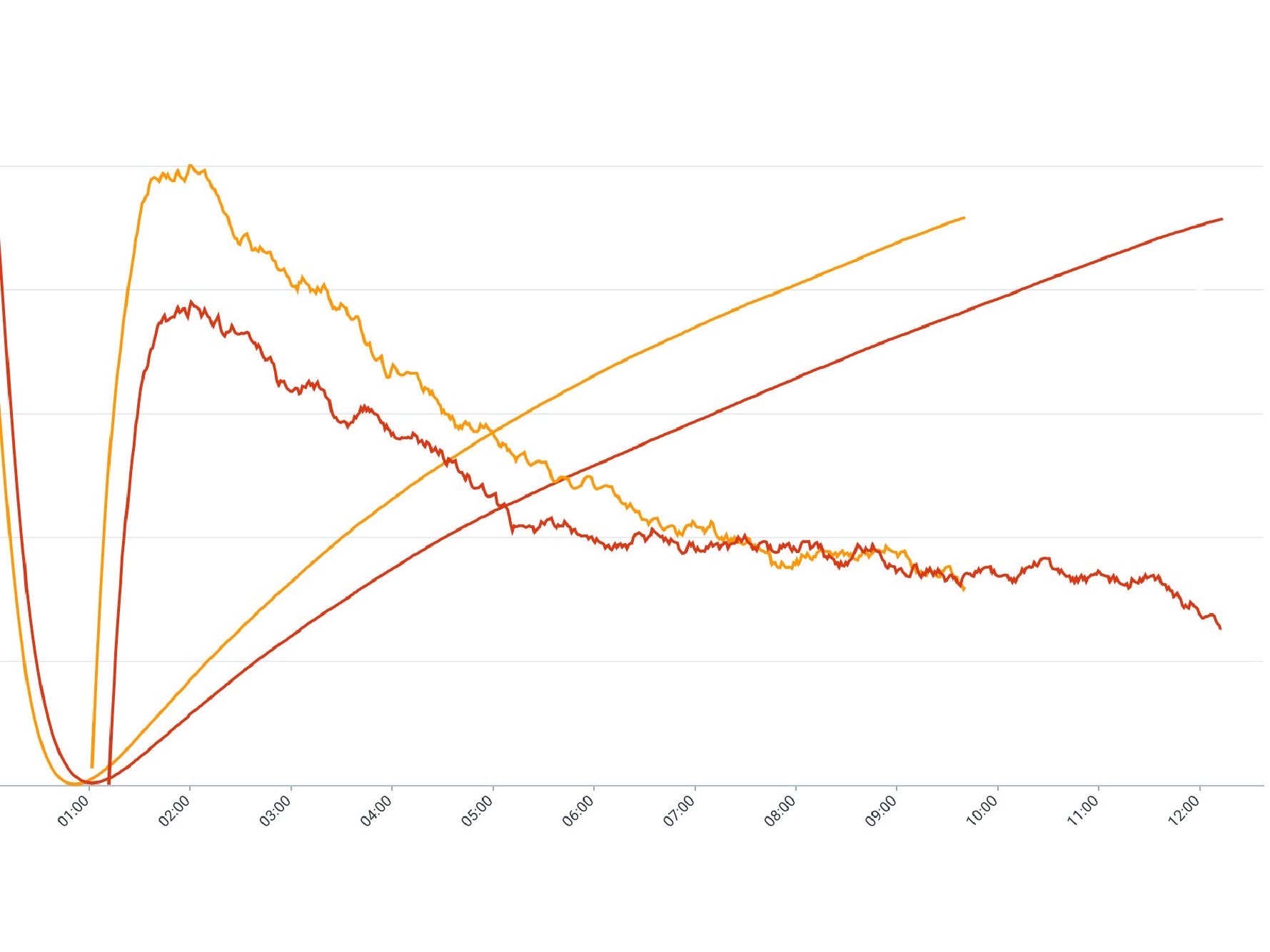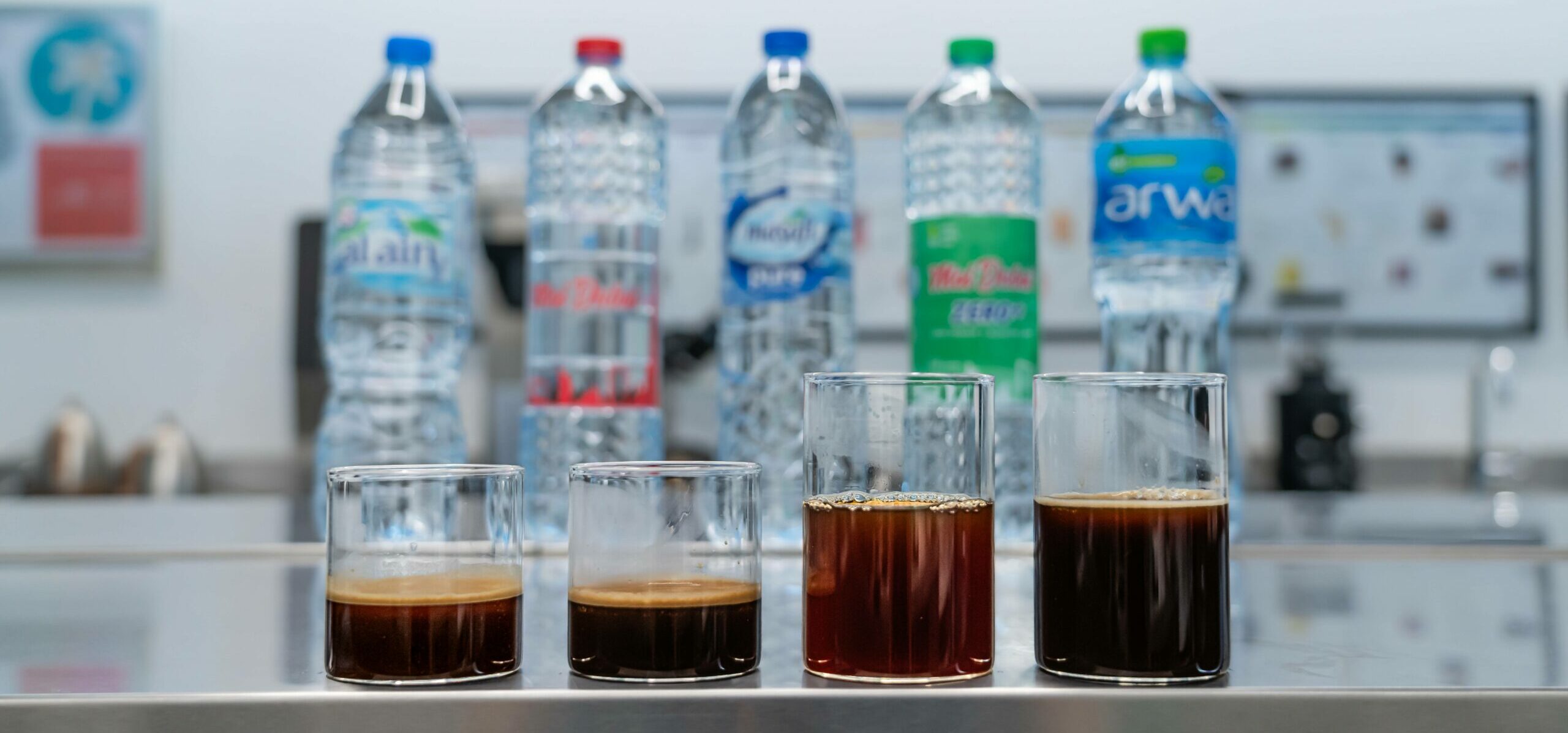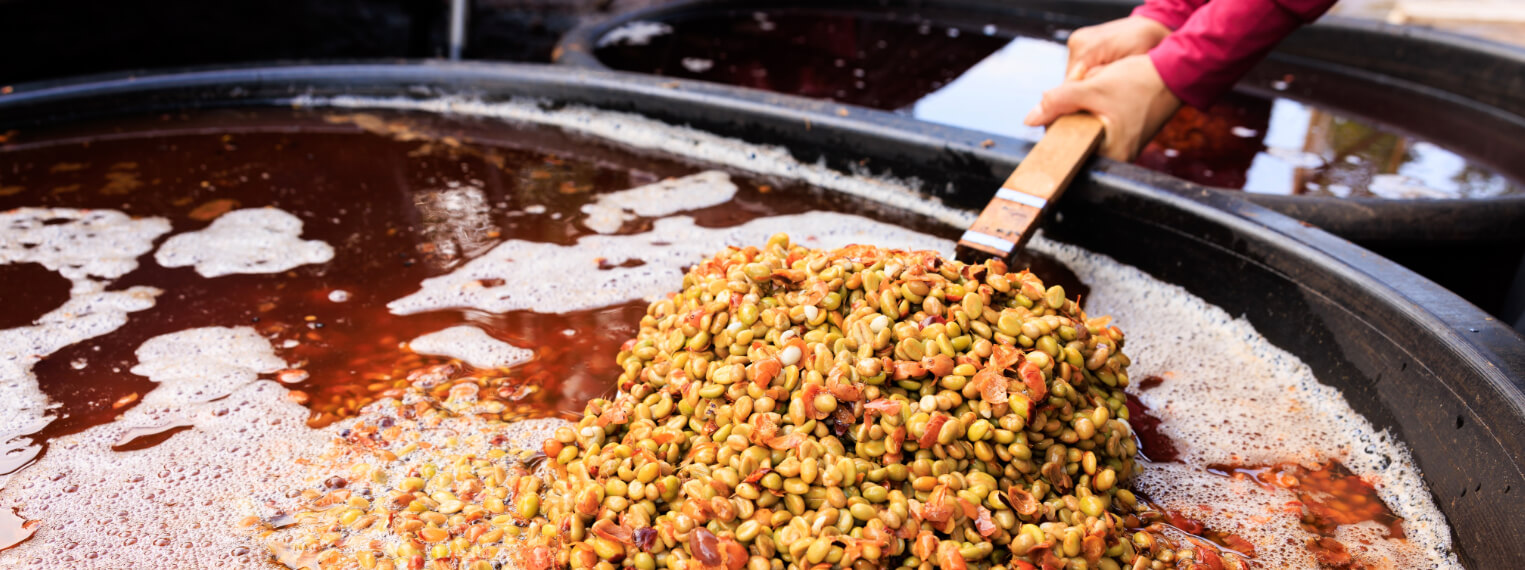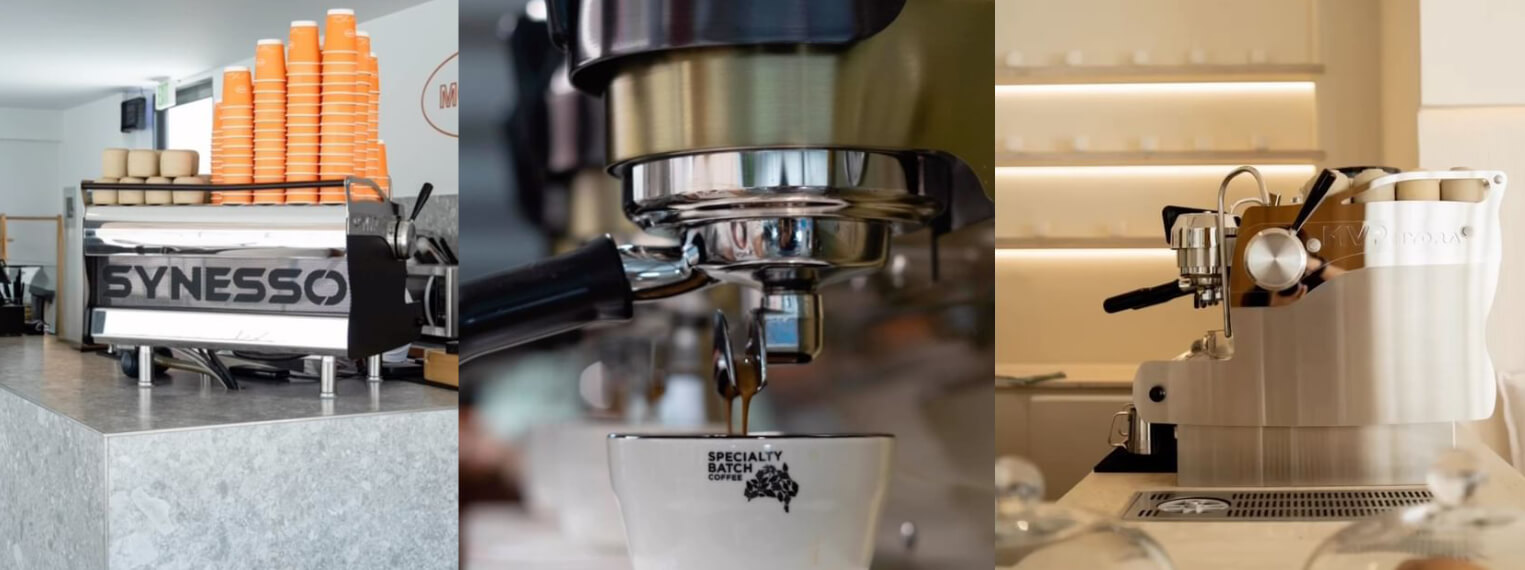Should you avoid an omni roast?
The latin ‘Omni-‘ is a word-forming element meaning “all”
Hence, the Omni-roast is ‘designed’ to be a coffee roasted for all purposes.
Or is it?!
In some cases, Yes, you can have a coffee that would work in filter or espresso but it can never excel at both simultaneously.
Tell you what it definitely is – it’s a good way for us to minimise on roasted coffee wastage at our roastery!
So, it’s no surprise that we have different roast styles for filter and espresso.
We believe that coffee should be roasted to obtain maximum flavour and enjoyment without compromise, and this ultimately depends on how the coffee is going to be brewed. Different brewing techniques don’t just require a different grind size, but different roasting recipes as well.
Why, you ask?
Consider that filter coffee grounds are in contact with water for up to 4 minutes, and an espresso has water forced through the coffee at high pressure for anywhere between 20-35 seconds; it’s hard to expect that you are able to achieve the absolute best tasting coffee from one magical roast recipe. The problem with having a single roast recipe to cover all bases is that the coffee has to be a ‘jack of all, and a master of none’.
At best, this will taste just ‘OK’ but there is a higher probability of your coffee tasting flat, boring, dry, burnt and/or bitter when brewed as a filter coffee, and too acidic, thin, watery, sour and/or salty when pushed through an espresso machine.
Perception and Visual Interpretation
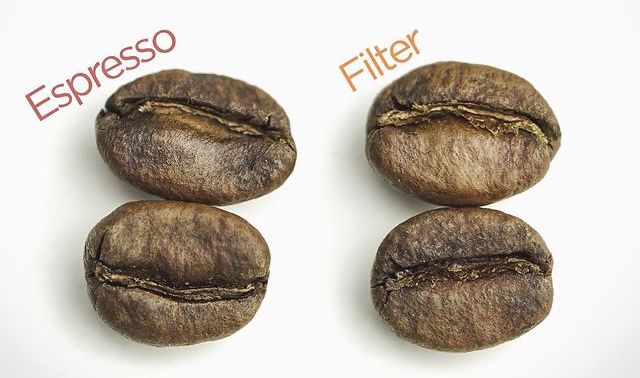
In many instances when roasting the same coffee, both our roasting styles may ‘appear’ to have the same bean colour. They may even have the same roast-end temperature. Much like our super-popular Ethiopian Harfusa here 👆🏽
But colour alone does not necessarily reveal everything about a coffee!
You really need to look at the bigger picture. 🔍
Dedicated roasting styles are designed to give the barista more control over the extraction, allowing them to maximise on the overall taste without the ‘body vs flavour’ compromise. Our deliberate filter and espresso roasts, when brewed properly, would also exhibit positive flavour changes while the speciality coffee cools from 80°C down to room temperature. (𝘔𝘰𝘳𝘦 𝘰𝘯 𝘵𝘩𝘪𝘴 𝘭𝘢𝘵𝘦𝘳..)
The true art of roasting is preempting the beans behaviour during the roasting process and being able to consistently repeat a specific recipe for a specific coffee. It involves well-planned adjustments of applied heat and air flow to reach the desired outcome.
Every coffee is different (origin, variety, processing, density and moisture levels) so every roast recipe has to be individually designed
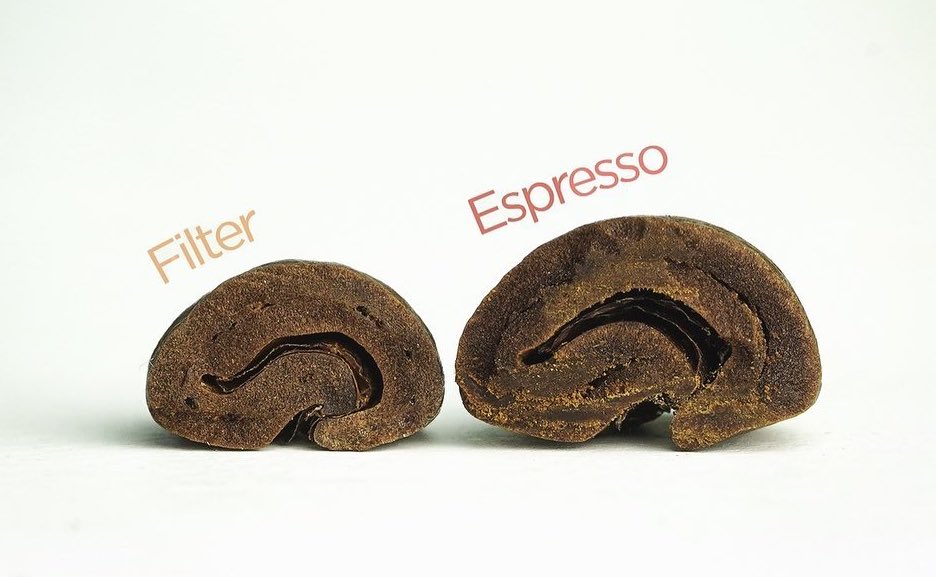
While we know that some of our roasted coffees can be brewed both as espresso or filter, there will always be one dominating preference and suggestion by our head roaster.
There are valid reasons for having a unified roast recipe, but the most appropriate is the C-word… Convenience.
When to use an omni roast?
For the average home-user an omni roast is no doubt the most convenient. But when it comes to a cafe or restaurant that prides itself on serving their customers with the best of the best, this is the ultimate compromise
If you know us or currently get your coffee from us, You know exactly who is roasting your coffee with care, passion and skill, everyday, since our launch..
Our methodology and ethos applied, in the most consistent manner possible..
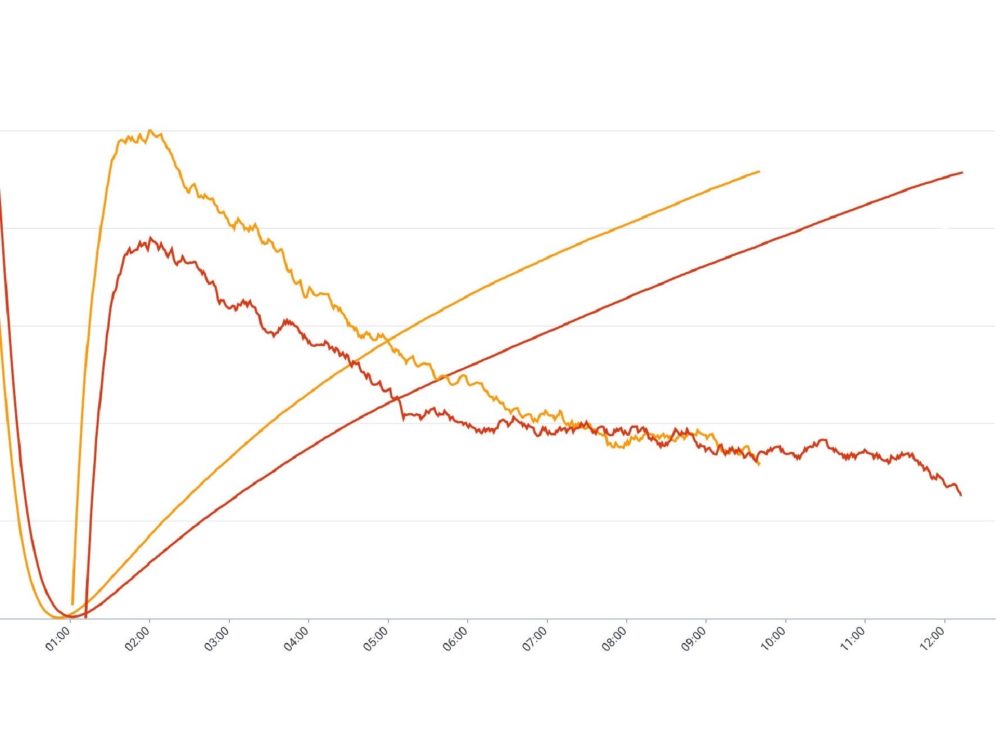
𝙁𝙞𝙡𝙩𝙚𝙧 𝙧𝙤𝙖𝙨𝙩
Typically a faster roast out of the two. Our aim is to preserve the acidity and sweetness without breaking down too much of the amino acids and sugars; a roast specifically designed for slower brew processes (such as pour-overs, immersion, and Aeropress); with the intention of bringing out the floral, fruity, fragrant, juicy flavour notes.
A filter roast brewed as espresso can occasionally be good, but more often than not, it will be end up watery & taste sour, sharp and acidic. You will find yourself using twice as much coffee than you should just to get a balanced taste, purely due to roasted beans’ limitation.
𝙀𝙨𝙥𝙧𝙚𝙨𝙨𝙤 𝙧𝙤𝙖𝙨𝙩
..the slower roast out of the two. Our aim is to balance the acidity levels through to the right amount of caramelisation of the beans’ own sucrose; making a well-balanced, structured, sweet bean with higher solubility and a lush aroma.
As a shot, it should leave you with a highly pleasant aftertaste. A good single origin espresso will have a deep richness of layered flavour, while often fruity it should also possess good bass notes. With milk, the espresso should stand out while not tasting bitter, astringent or ‘roasty’

